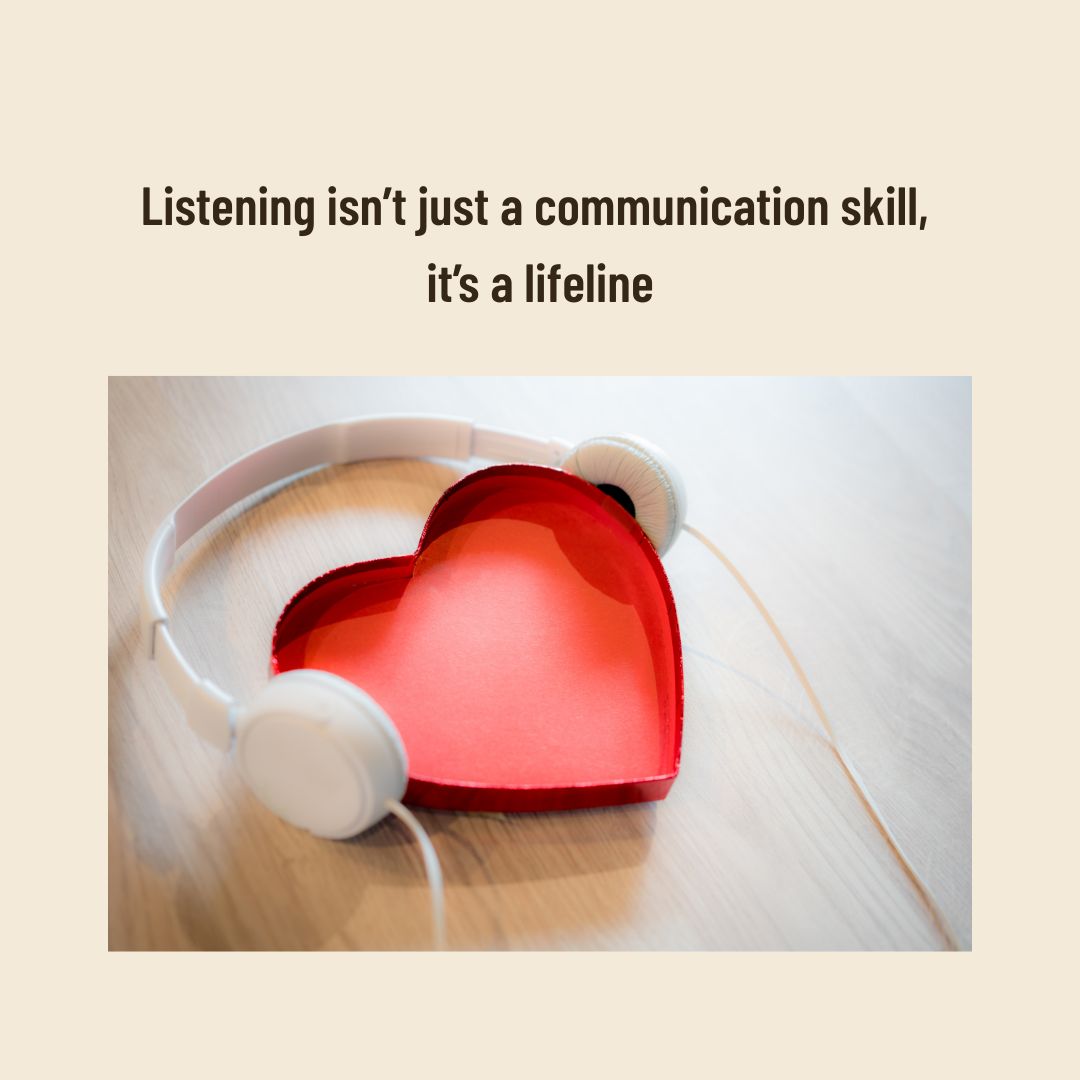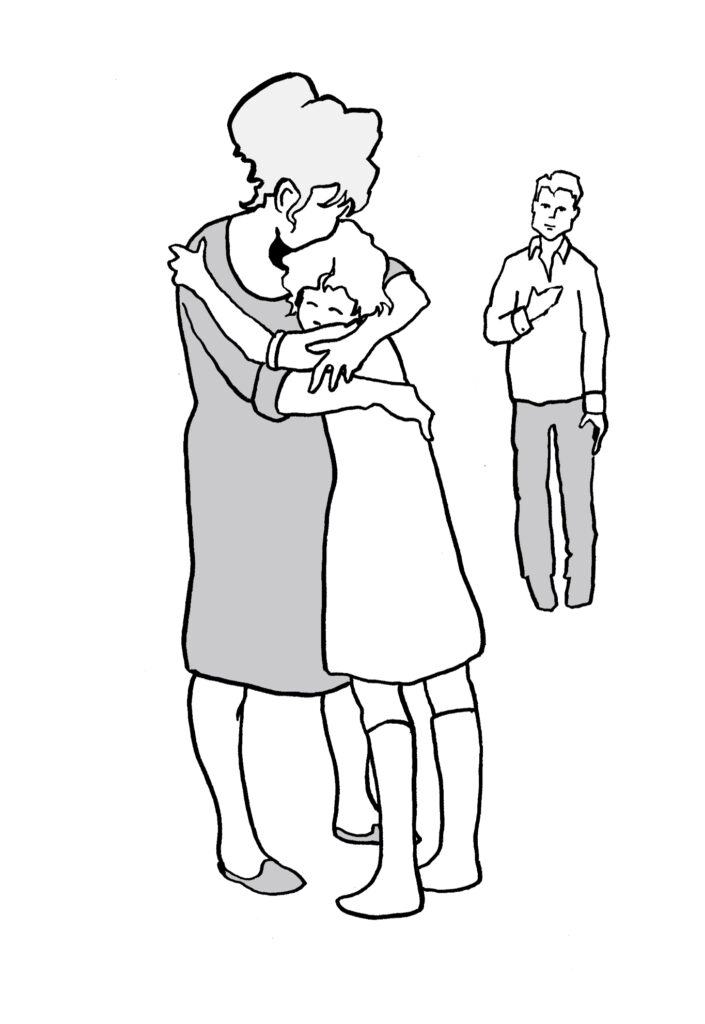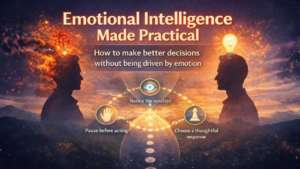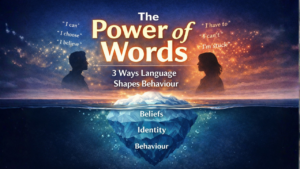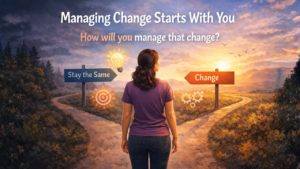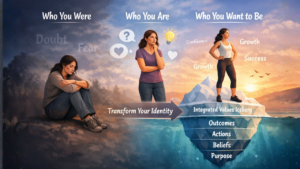The Link Between Listening and Mental Health
We often think of mental health in terms of therapy, medication, lifestyle changes, and other big actions. But sometimes, the most powerful mental health support comes from something deceptively simple: listening.
When someone feels genuinely heard, their burden lightens. When they don’t, the weight of silence grows heavier. Listening and mental health are deeply connected—listening isn’t just a communication skill, it’s a lifeline.
Why Listening Matters for Mental Wellbeing
Isolation and disconnection are common themes in poor mental health. People struggling with anxiety, depression, or stress often feel alone in their thoughts. What they crave most isn’t advice or solutions—it’s understanding.
That’s why developing active listening skills is so powerful. It validates emotions, reduces loneliness, and builds trust. A simple moment of presence, putting down your phone, making eye contact, and really tuning in, can make the difference between someone feeling invisible or valued.
This is what creates a mental health connection, the experience of being heard and understood.
Common Barriers to Listening
Despite our best intentions, most of us fall into the same traps:
Rushing to fix something. We want to solve the problem instead of hearing the person.
Filling silence. We’re uncomfortable with pauses, so we talk over them.
Missing the real issue. People rarely share what’s bothering them first. They start with something lighter. If we cut them off, we never get to the heart of what’s really bothering them.
The result? They walk away unheard, and their sense of isolation deepens. This is why listening skills for mental health are so vital.
Practical Listening Steps for Supporting Mental Health
You don’t need to be a therapist or expert in listening therapy in Australia to make a difference. You just need to be a good listener.
Here are some supportive listening tips anyone can use:
Recognise the signs. Watch for unusual behaviour, strong emotion, or subtle body language cues.
Engage with presence. Put aside distractions. Show you’re ready to listen.
Stay quiet longer than feels comfortable. Silence gives them space to open up.
Summarise what you hear. Reflect their words back to show you understand, it’s the clearest way to communicate empathy.
Don’t rush to fix. Your job is not to solve, it’s to support.
These are the same active listening skills that strengthen relationships and build trust in every area of life.
Beyond Blue: A Cause Worth Supporting
In Australia, Beyond Blue
has been at the forefront of mental health support in Australia for over 20 years. They provide resources, crisis support, and awareness programs that encourage people to speak up, and for the rest of us to listen. Their mission aligns perfectly with the message of listening and mental health: creating safe spaces where people feel heard and understood.
Supporting Beyond Blue isn’t just about funding, it’s about practising their message. When you ask, “R U OK?” and then listen deeply, you become part of a national movement that saves lives. Each R U OK conversation in Australia reminds someone they matter.
About the Book Listening
My book, Listening: A Guide to Building Deeper Connections, grew out of decades of leadership coaching. I discovered that the skills we teach leaders, things like presence, patience, and understanding, are just as powerful at home.
Over the years, I’ve seen listening change relationships, heal family rifts, and, in some cases, save relationships and connections. The book shares models like the Integrated Values Iceberg and the R.E.O.S.T.A.R. Process which are practical tools anyone can use to listen more deeply and connect on a human level.
The link between listening and mental health is simple but profound: when people feel heard, they feel less alone. When we create that mental health connection, we give them strength.
Call-to-Action
This week, try this: choose one person in your life and give them your undivided attention. No advice, no distractions, just listen. Notice what happens.
And if you or someone you love needs support, please reach out to Beyond Blue
Related Resources
- 📖 Book: Listening – A Guide to Building Deeper Connections – available in paperback, eBook, and audiobook.
🎯 Coaching: Book a personal session for personalised support.
💼 Leadership Tips: Subscribe to the Team Focus newsletter here.

